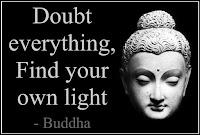 |
| Gissing fans celebrate the 100th Commonplace blog with their interpretation of The Nether World via the medium of The Frug click. |
There is soon to be a television film version of Julian Barnes' 2005 book 'Arthur and George'. This is an account of a notorious miscarriage of justice that so appalled Arthur Conan Doyle, that he summoned all the Holmesian detective skills he had built up writing about imaginary crime to the task of exonerating Mr George Edalji, a vicar's son who was sent to prison for crimes he did not commit. Mr Edalji was a Christian, a son of a minister, but his father had been born a Parsee; George Edalji had an Indian father and a Scots mother - and Arthur's 'Mam' was Scots, too. Doyle was of the opinion the case was riddled with the taint of racism, though Mr Edalji was reluctant to accept that might be the case, and worked enthusiastically to right the great wrong. Doyle's forceful campaigning lead to the formation of the UK Courts of Criminal Appeal. For more on this click.
 |
| Elsie Wright's Evidence of the Cottingley Fairies? click |
Though George knew Arthur Conan Doyle via the Omar Kayaam dinners they would not have had much in common - apart from very fine moustaches, George wasn't very keen on successful writers. George didn't need an Arthur in his life - he had already given his heart to one: Herr Schopenhauer.
 |
| Amen to that! |
 |
| Kamakura Buddha Japan c 13th Century |
 |
| The Dude abides... |
In his Commonplace Book, George startlingly George reveals that, if pressed he would describe his religion as Manichaeism. Why is this such a shock? Well, it is one of the Gnostic religions, whose basic tents include, according to Tobias Churton, an expert on all such things click philanthropy to the point of personal poverty, sexual abstinence (as far as possible for hearers (disciples/followers), entirely for initiates) and diligently searching for wisdom by helping others. We all know George is not famed for these personal qualities.
And, yet, in other ways, it makes perfect sense for George to claim to be a Manichaen - this ancient Middle-Eastern faith has the added allure of being the sort of religion a somewhat pretentious academic would follow. It was once a main competitor to early Christianity in its zeal to rid the world of paganism, flirts with some of the Eastern philosophy so beloved of Schopenhauer, by way of Plato, and requires hours of solitary reading research to reanimate the lost texts. Basic concepts: Existence is the perpetual struggle between Light (spiritual things) and Dark (base, physical stuff). Good vs Evil is the basis of most religions, but Sigmund Freud, himself much influenced by Schopenhauer, would be right at home. The religion was started by Mani a third century AD Persian, and seems to have pulled together bits of Christianity, Buddhism, Zoroastrianism, and Babylonian folklore click - something there for Friedrich Nietzsche.
In Manichaeism, the woes of the world started after a mighty kerfuffle kicked off when the Prince of Darkness invaded the Realm of Light - shades of the Asgardians vs the Frost Giants here, in the canon of Stan Lee's reworking of the Norse Legends. For a comprehensive, and highly fascinating, account of Manichaeism, I urge you to click. This is a strange place for an Atheist to send you, but I am a complex creature (though not a gullible one haha).
So, was our George ever a Manichaean? Well, if you have to practice a faith to own it, then the answer would be a resounding No. George was not the sort to follow any other man's calling - he might have started his own religion (and who says he didn't haha) if he'd had enough interest in the Soul of Woman/Man - but he didn't care much about saving anyone. The dualism of Good vs Evil was a popular theme of late Victorian discourse, exemplified by Stevenson's Jekyll and Hyde - animal versus spiritual, rich versus poor, industrial versus bucolic, old versus new, Britain versus the Rest of The World, Capitalism versus Socialism, faith versus proof - and, in the case of Arthur Conan Doyle, alive versus dead.
To many Atheists, one of the central flaws of all faiths is the 'In Crowd' scenario - 'if you are not with us, you are against us'. In George's time, a more sinister concept - one that exemplifies Dark versus Light - was beginning to muster on the battlefield of morality (one trait shared by the religious and the non-believers is morality). This was the 'worth versus non-worth' debate. The spectre of eugenics was stalking the mental landscape.
JOIN ME IN COMMONPLACE 101 TO EXPLORE WHAT GEORGE THOUGHT ABOUT THIS.



No comments:
Post a Comment